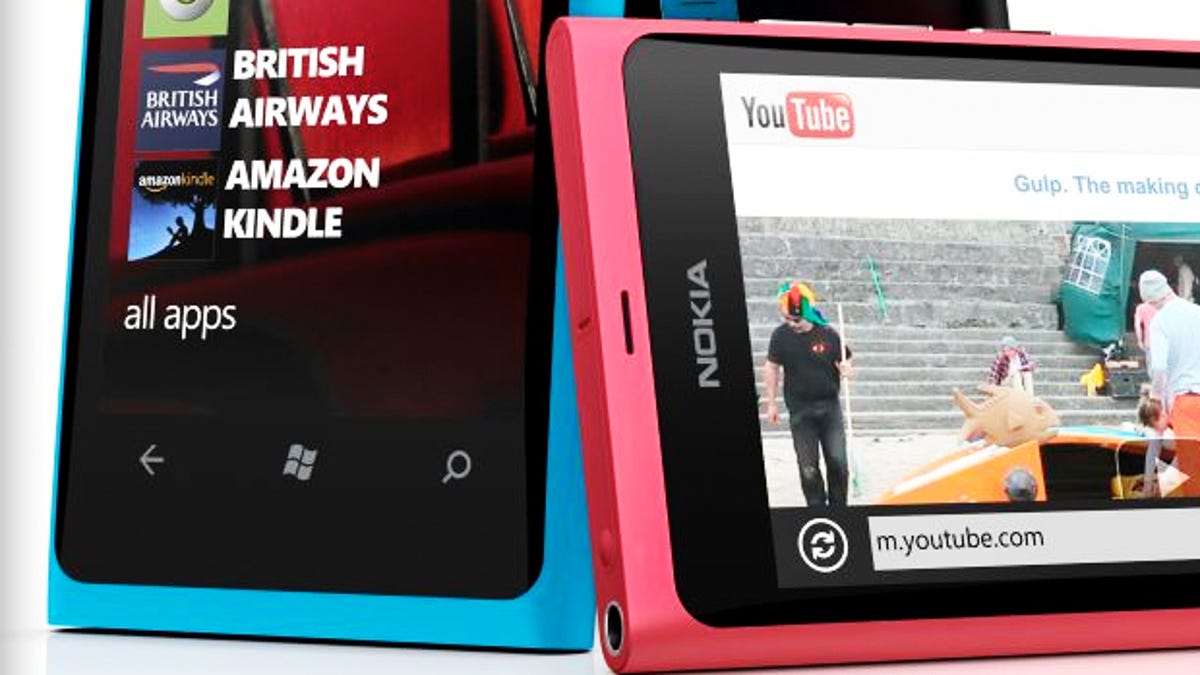AT&T, Verizon test 4G LTE Nokia Lumia phone
Even though Microsoft's Windows Phone platform doesn't yet officially support 4G LTE, a version of the Lumia 800 is in both carriers' labs, CNET has learned.

Behind the scenes, Nokia is making some headway with the big two carriers in the U.S.
The Finnish handset vendor, eager for a comeback, is testing a 4G LTE version of its Lumia 800 smartphone, CNET has learned. That's despite the fact that the Windows Phone operating system powering the Lumia doesn't yet officially support LTE.
The lack of LTE support has been seen as a critical issue for the U.S. carriers, which are increasingly focusing on 4G devices and services. As a result, anyone supporting Windows Phone, including Nokia, faces hurdles getting approval. But Nokia has been running a 4G LTE version of the Lumia 800 in an effort to get the ball rolling on carrier approval, according to several people familiar with the situation.
Carriers, however, test many devices, including some they have no plans to take to market, the people warned. Still, that Nokia is moving aggressively with the major carriers bodes well for its prospects in the U.S.
AT&T spokesman Mark Siegel, Verizon Wireless spokeswoman Brenda Raney, and Nokia spokesman Keith Nowak all declined to comment.
Getting back into the U.S. market is an important component of Nokia's comeback plans. The former handset powerhouse is already scheduled to throw a press conference with T-Mobile USA on Wednesday. The announcement is widely expected to be the Lumia 710, the more budget-friendly, and lower-end, of its two offerings.
Although T-Mobile marks a step in the right direction, analysts believe Nokia will need to get the support of the big two carriers to have a real shot at the U.S. market.
LTE a hang-up While AT&T and Verizon are in talks with Nokia about selling a phone, both are looking for LTE support.
So it would be in the best interest of Microsoft to get LTE approved for use on its platform sooner than later. Microsoft's platform, despite some critical praise, languishes far behind Apple's iOS and Google's Android, which dominate the market for smartphones.
When asked about LTE support last month, Windows Phone President Andy Lee declined to comment to CNET about timing. He did add that he expects more marketing support from the carriers and vendors over the next few months.
Nokia represents Microsoft's best chance at a comeback. The vendor has committed to Windows Phone as its primary operating system, something no other company has done. Other vendors such as Samsung Electronics and HTC support Windows Phone, but clearly have their resources devoted to Android. Nokia, meanwhile, also has the scale and size and to make something of Windows Phone.
The level of interest from AT&T and Verizon varies. AT&T is believed to be more interested in a partnership, and a report from WinRumors has the carrier launching the Lumia 800 at the Consumer Electronics Show next month. The Verge, meanwhile, reported the Lumia 800 would launch in the U.S. with the Tango version of Windows Phone, which supports LTE.
Nokia and AT&T have had an on-again, off-again relationship in the past, with AT&T even featuring the E71x Symbian-powered smartphone in commercials two years ago.
Verizon, meanwhile, remains cool to the idea of a Nokia phone. While the companies are in discussions, Verizon still needs to be convinced that Nokia has a solid game plan for its comeback in the U.S.
Verizon and Nokia haven't worked together in years, largely after Nokia pulled back its resources on making CDMA devices in favor of the more globally used GSM standard. Nokia, however, is hoping that will change.
U.S. carriers want to feel the love Getting the Lumia 800 in the U.S. would represent a nice start for Nokia, but it's just a start. Despite some of the buzz around the phone, neither carrier would consider it a flagship device.
That's because the Lumia 800 was announced in October, and is also already in the market in Europe. The U.S. carriers aren't going to aggressively push a phone that has already out been out for months. For Verizon or AT&T to get excited about a Nokia device, it needs to be an exclusive or part of the initial launch. In the U.S., the carriers are typically the ones who announce a high-profile device, or at least work in conjunction with the vendors for joint announcements.
Even Samsung, which announced its Galaxy S II flagship device months before it hit the U.S., made minor tweaks for each carrier and announced the stateside versions at a splashy event with AT&T, Sprint Nextel, and T-Mobile.
Nokia is believed to be working on future smartphones where the U.S. carriers are involved with the development process, or at least roped in earlier.
While there are bigger markets in the world, the U.S. remains important for Nokia because it's a large market filled with consumers eager to snap up smartphones. It's also been an area of weakness for the company over the last few years, meaning it's also a potential source for growth.
But a lot depends on how willing Nokia is to play ball with the U.S. carriers.

